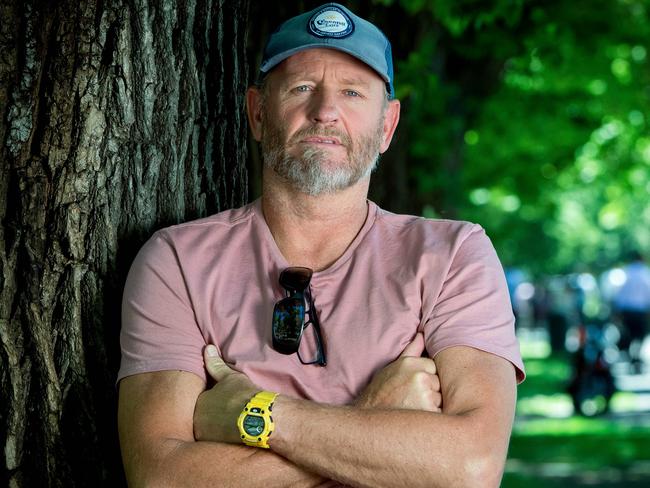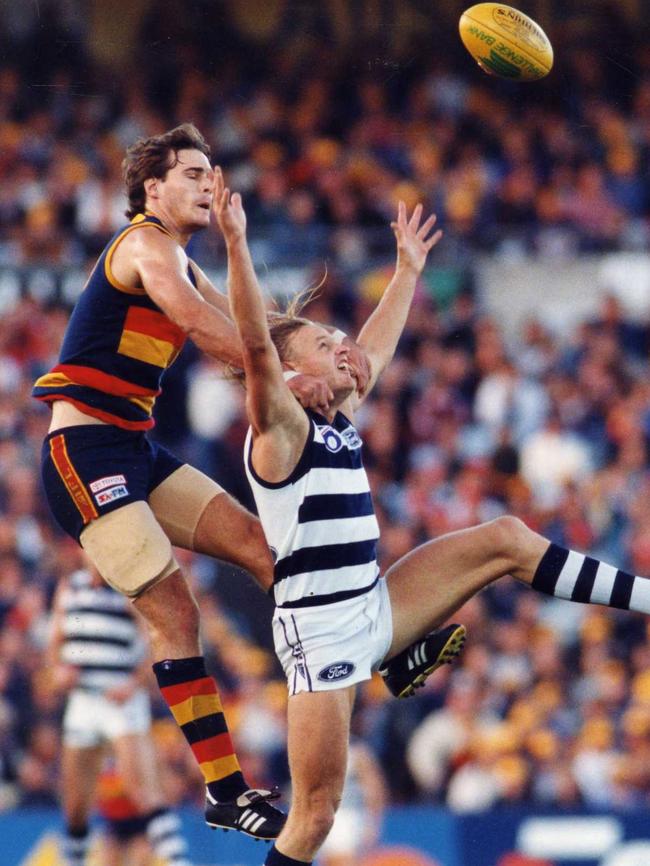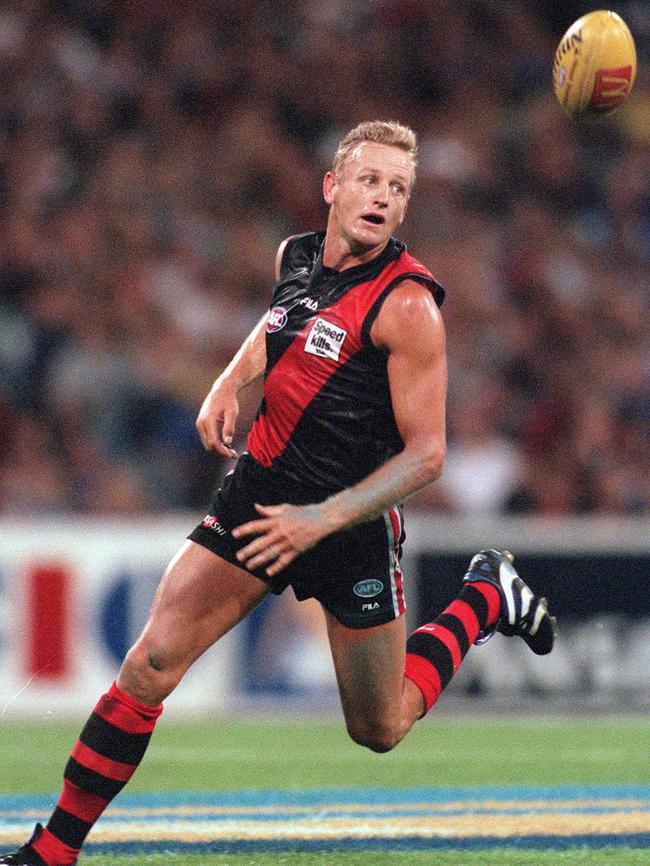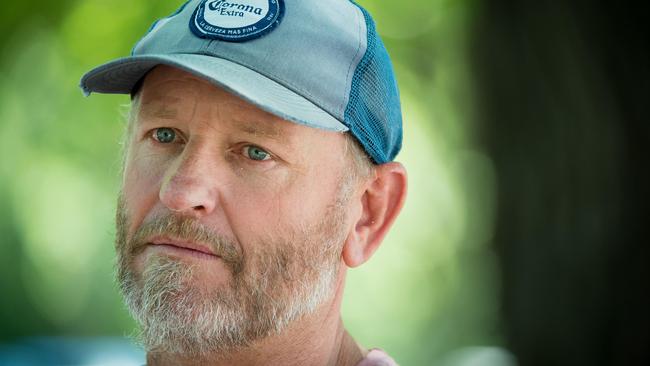Former Essendon, Geelong ruckman John Barnes details lifechanging concussion effects
AFL concussion victim John Barnes has detailed the impact of repeated head knocks during his AFL career which he says have turned his life upside down and an expert fears has the former ruckman "driving a car with no brakes".
Essendon premiership ruckman John Barnes ​has detailed the life changing impact of head knocks suffered during his 202-game AFL career.
Barnes fears his battles with epilepsy, memory loss and anger are linked to concussion issues during his career with the Bombers and Geelong.
The former AFL hardman has spearheaded a concussion damages action against the AFL and its clubs.
AFL TO FUND MINIMUM $250K A YEAR FOR CONCUSSION RESEARCH
JUSTIN CLARKE’S EMOTIONAL INSIGHT INTO LIFE POST FOOTBALL
“It’s turned my life upside down ... I’m not the same bloke I used to be,” Barnes told the Herald Sun in 2017.
“I know things are changing in my mind and I want answers.”
Geelong great Graham 'Polly' Farmer has been the first player to be diagnosed with a crippling neurological disorder as a result of head knocks while playing football.
Tissue from Farmer's brain was analysed last year after his death.
Barnes is among several former AFL players who have explored their legal options for neurological impairments they believe are linked to concussions.

Barnes has agreed to be a lead plaintiff in a proposed Federal Court action driven by Adelaide United chairman and top commercial lawyer Greg Griffin and veteran AFL player agent Peter Jess.
“The causes of action will be predominantly the same as those run by NFL players in the US,” Griffin said.
Barnes said he suffered his first seizure when travelling as a passenger in car.
“I passed out and froth was coming out of my mouth,” he said.
“It was like I’d gone five rounds with Mike Tyson — it absolutely knocked the guts out of me.
“Eight weeks later, I had another one in the supermarket.
“I was paying for my groceries and just passed out on the floor. I smashed my elbow and got stitches in that. The paramedics were called and I came to in the ambulance.
“It takes about 10 to 15 minutes for the brain to recalculate.”
Barnes, who says he suffered many significant head knocks playing AFL, has been assessed by two brain experts including St Vincent’s head of neurology, professor Mark Cook, and leading neuroscientist professor Alan Pearce.


“I got the report back and he (Pearce) said it’s like I’m driving a car with no brakes,” Barnes said.
“I’m going downhill fast and all the damage has been done.
“I had three broken jaws playing footy and was concussed probably half a dozen times.
“Other times, you just shook it off and kept going, and that could have been three knocks a game that stun you like a mullet.”
His biggest hit came in a collision with Richmond’s John Howat at the MCG in the 1990s.
“He came off the bench and knocked me out and I didn’t even know it was coming,” Barnes said.
“You don’t think much about it at the time as a kid, because that’s what you love to do — you love playing the game.
“I played loose in the backline all the time and got about five punches to the back of the head every week.”
Barnes, married with two kids, said his failing memory and rising temper were also concerns.
“It’s small things that turn into bigger things. I walk around the house and go: ‘Why am I in the kitchen?’ Then I walk out again and say: ‘Oh, that’s right’.”

Prof Cook said: “We know repeated head knocks can cause brain injury, even though that wasn’t believed for a long time, and we know any kind of brain injury can cause seizures.”
Prof Pearce has tested more than 50 past and present Australian rules players as part of ongoing research.
He said Barnes’ epilepsy could be linked to his history of concussions.
“A history of head knocks and traumatic brain injuries, which concussion falls into, can increase the risk of seizures,” Pearce said.
“That doesn’t mean everyone will get them — concussion affects people in different ways, and sometimes not at all.”
Former players including Greg Williams, John Platten, Ian Paton and Matthew Robbins have spoken publicly about their struggles with neurological impairment post-career.
Jess said players had no option but to seek damages through the courts because professional sports people were excluded from seeking workers’ compensation insurance.
“The claims will revolve around duty of care and what protocols were in place about returning to play,” he said.
